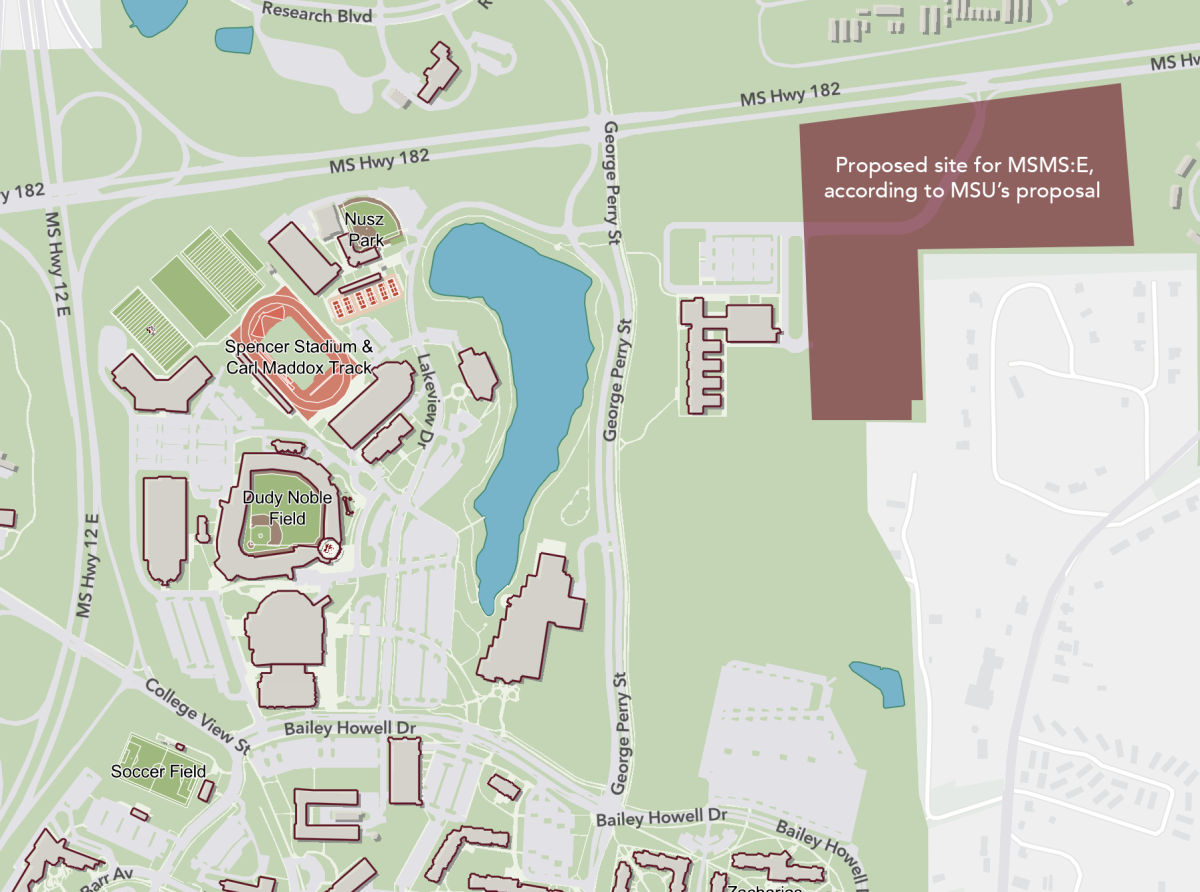Since the beginning of the COVID-19 pandemic, the Mississippi State Department of Health has collected data related to cases, deaths and vaccinations.
Amy Loggins, a quality care coordinator at OCH Regional Medical Center in Starkville, is one of the individuals responsible for sending data to the MSDH. Loggins provided insight into how that data is collected.
“Since March of 2020, MSDH has sent us templates with data they want collected. So each day, based on our census, we can go through each chart and be able to get statistics. It’s mainly how many we had in the facility, in the ICU, how many are on a ventilator and how many deaths we may have had in the past 24 hours,” Loggins said.
Additionally, Loggins said MSDH collects data for other federal organizations, such as Health and Human Services.
The quality care coordinator spoke about how hospitals and other medical facilities determine whether or not to attribute a death to COVID.
“If they’re still in the infectious window, we are able to do rapid testing if someone, say, comes into the ER with respiratory symptoms. You’re going to see the classic shortness of breath, coughing, fevers, sometimes loss of taste or smell. In that time period, they continue doing COVID testing, and so we are aware if they’re positive when they die,” Loggins said.
Loggins spoke about the rumors of inflated or increased numbers in the data sent to the MSDH.
“I personally believe that my data is accurate,” Loggins said. “There have been lots of rumors about a conspiracy to increase deaths. Our office in our hospital takes this very seriously, and we don’t have so many that we don’t know what happened with a patient’s care. I stand behind all the statistics that we have sent to the state health department. We spend a lot of time on it.”
Dr. Jeremy Blanchard, chief medical officer of North Mississippi Health Services, echoed Loggins’ point about the accuracy of collected data.
“The information, such as how many patients are in your hospital that have been admitted to your cohort or COVID units, is best entered from the actual facility the patient is in, and then it is reviewed at a central source for its accuracy and then submitted. So again, I feel very comfortable that that data is accurate,” Blanchard said.
Blanchard explained how physicians determine if COVID is a patient’s cause of death.
“So, from the first standpoint, we treat people based on clinical acumen or clinical presentation first and foremost. The testing would be part of it, but it wouldn’t be the sole determinant,” Blanchard said. “Then, we do appropriate testing, and that can change based on the presentation of the patient. There are cases where the COVID appears to be the cause of their problem or where it’s an incidental finding. If it is the cause of the problem and that leads to death, that is attributed to COVID. If it’s an incidental finding, then it’s attributed to whatever caused the patient’s death.”
Blanchard also mentioned the rumors of cases and deaths being reported more often than they happen.
“I think we’re in the midst of a collision between groups of people who sincerely care and are really worried about our world and our situation. One group is really worried that we’re not accurately reporting when COVID injures people and want to make sure that we report everything,” Blanchard said. “One group feels we’re over-reporting, and so they want everything to be subject to being scrutinized at a really high level, and then other groups are really caught up in following whatever is told to them in different media, including social media.”
One individual with intimate knowledge of the COVID situation in Mississippi is Dr. Paul Byers, state epidemiologist for MSDH. Byers spoke about the way the state health department collects COVID data.
“Cases and deaths due to COVID-19 are reported by healthcare providers and healthcare facilities throughout the state, and these reports include demographics and other data. Additionally, MSDH collects information directly through individual case investigations and medical records. The total cases and deaths that are reported each day reflect the number of cases and deaths reported to MSDH in the day before, or identified time period before, as in the case of weekends and holidays,” Byers wrote in an email to the Reflector.
Byers also described how MSDH ensures COVID data is not over or under reported in the system.
“There are sometimes delays in lab reporting from testing facilities, so there may also be underreporting. There can also be underreporting due to individuals never being tested for COVID-19 and therefore not recognized and reported. MSDH staff duplicates data prior to reporting numbers to limit the potential for over-reporting due to duplicate cases,” Byers said.
Chief Medical Officer Blanchard said he enjoyed the community spirit in Mississippi, a vital part of the Magnolia State’s livelihood.
“We’re wonderful people in Mississippi— people who start with a handshake and an understanding of wanting to care for each other and valuing relationships,” Blanchard said. “We need to reflect on whether we are at risk of losing that, and if we are at risk of losing it, don’t we each own a part of that? Maybe the way to overcome that is rather than looking for how we disagree, look at how we can love and care for each other and support each other, and work our way through this and try to be the most respectful we can be to other folks.”
Dr. Paul Byers, state epidemologist, MSDH.





















